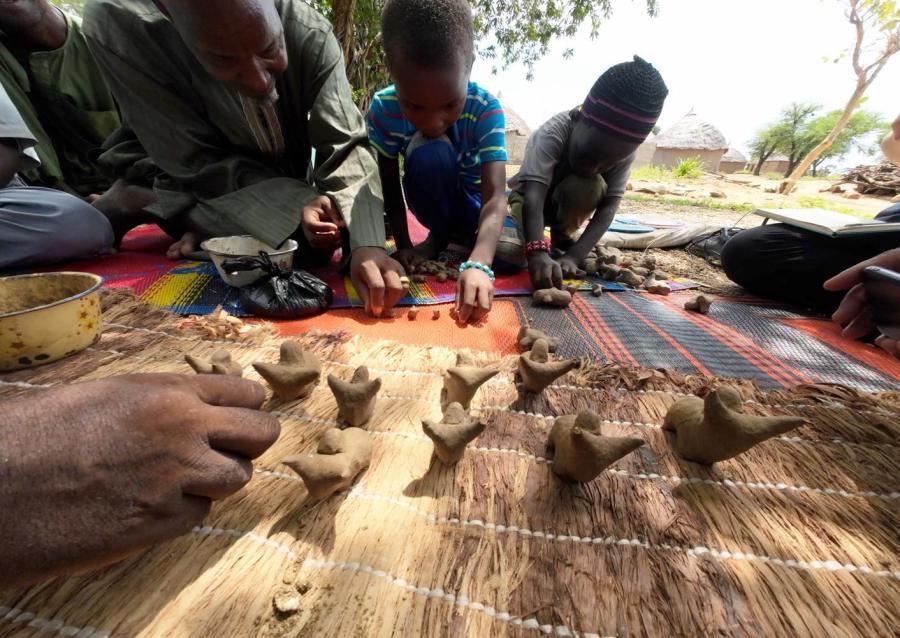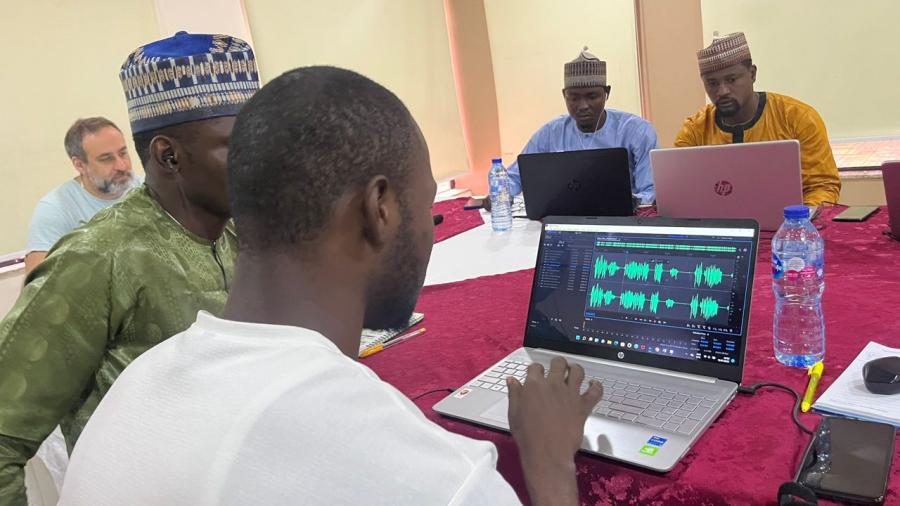In November 1995 Kenule Saro-Wiwa and eight young Ogoni men were executed by the Nigerian government. While accused by Nigeria's military regime of murdering several of their rivals last May, Saro-Wiwa has led a nonviolent opposition to oil exploitation by Shell since 1958. The British Bar of Human Rights Committee lawyer observing the trial termed the proceedings unconstitutional, noting that the trial lay outside the normal judiciary procedure and that there was no right of appeal. He also reported that several witnesses against Saro-Wiwa had sworn affidavits that they were bribed for their evidence by the police.
The Ogoni claim that local oil works have been undermining their traditional economy without compensation. Oil now underlies most of the soil and contaminates both their wells and the gulf. They told the Wall Street Journal that they are now afraid to practice traditional agriculture, which relies on the burning of undergrowth in the fallow fields to add nutrients to the soil, because of inadvertent fires. At the same time, they can not afford to buy commercial fertilizer, which is an important product of the petrochemical industry. They also complain that oil spills are killing the mangroves, which provide a breeding habitat for offshore fish, and are being replaced by weed trees. To find fish the Ogoni people say they must now go further out to sea than their boats are designed to take them. At the same time Shell employs a negligible number of Ogoni, and the funding it provides for development does not reach the Ogoni in the form of primary schools and health care centers, but instead is siphoned off through government graft.
There are current calls to begin sanctions against Nigeria and to boycott Shell. However, the US will probably reject the call for an embargo due both to the effect it would have on the price of gas and on the government in Nigeria, 80% of whose revenue comes from oil exports.
Last June plans for the future return of the government from military rule to democracy were underway. Saro-Wiwa was in the middle of a campaign drive urging Ogoni participation in a conference on the future of the constitution at the time of his arrest. His death and an indictment of 19 more Ogoni on similar charges offers little hope for a return to democracy from military rule or for an end to serious ethnic strife. Article copyright Cultural Survival, Inc.


